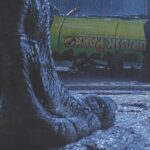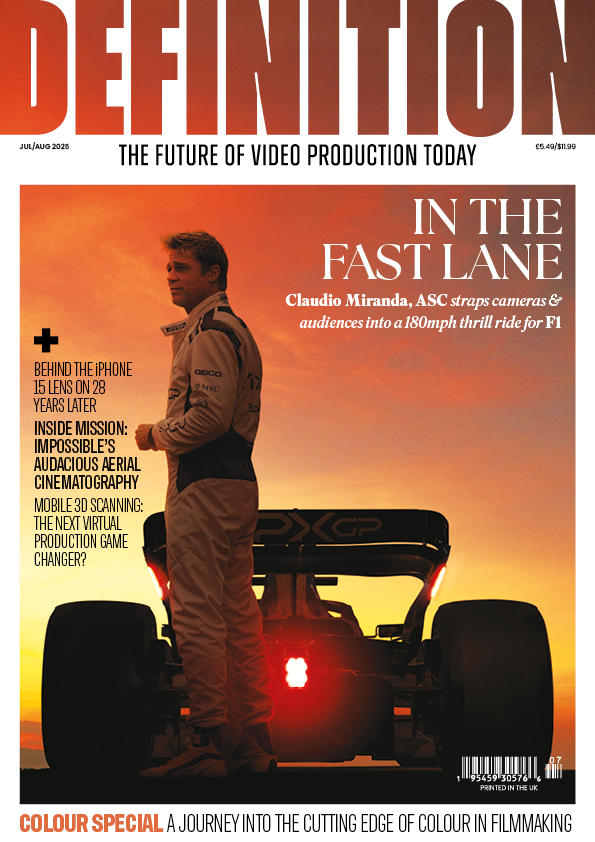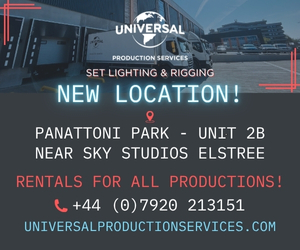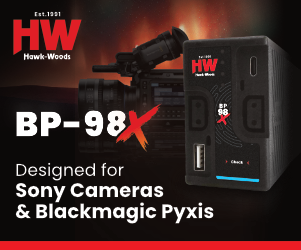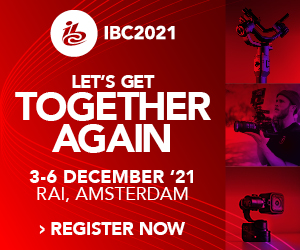Severn Screen CEO on Welsh production and sustainability
Posted on Aug 22, 2025 by Admin
Creative director and CEO of production company Severn Screen reflects on Wales’ evolving production landscape, the need to nurture local talent and taking meaningful action on sustainability
Interview Nicola Foley
Definition: How has the production landscape in Wales evolved over the past few years? Are things improving in terms of opportunity and infrastructure, or is there still work to be done?
Ed Talfan: Over the last 20 years, there has been a huge increase in productivity and confidence locally. The range of productions being made here has grown massively. The BBC and S4C laid the foundations, but they have been joined by the likes of Netflix, Disney, Amazon and HBO. It’s been a huge change. The support of Creative Wales has been a vital part of this growth too. It’s helped bring new partners to Wales, but at the same time played a critical role in ensuring that we continue to make programmes in both languages, at a level needed to reach an international audience.
That said, there’s always more work to be done. Given the challenges of the past few years – not least Brexit and the pandemic – it’s important that we don’t take any of the gains for granted.
Def: Supporting Welsh talent seems baked into everything you do. How are you finding new voices and supporting them?
ET: You’re right, it is baked into everything that we do. We work with a lot of Welsh writers, actors and directors, and are always looking to give opportunities to local talent and crews. In partnership with Creative Wales and Ffilm Cymru Wales, we also offer training opportunities on all of our projects. We want to see Welsh talent succeeding on the global stage – so as an industry, we have to make sure we’re investing in new voices and providing a platform for that talent to be seen and heard.
It’s also worth saying that there are significant socioeconomic challenges in Wales. The statistic we never lose sight of is that almost a third of children in Wales grow up in poverty. So we have a vested interest in bringing inward investment into Wales and supporting local crews and suppliers whenever we can.
Def: You’ve worked with a range of partners, including BBC Films, All 3 Media, XYZ Films and S4C. What’s the key to a great co-production relationship, and how do you protect your voice when working with such a variety of collaborators?
ET: Whoever you’re working with, it’s all about trust. When that’s in place, you can be pretty sure it’s going to be a good experience.
Voice means many things. We try to give a voice to local talent at all levels of production. We’re a small company with deep roots, and I feel that those roots are in our local communities.
Over the past ten years, we have filmed in most corners of Wales – in both languages – and worked with production talent from across the country. So I guess there‘s a definite Welsh flavour to a lot of the work we do.
But I should add that the stories we tell are universal. As a company, we want to tell stories that connect with people locally and internationally.
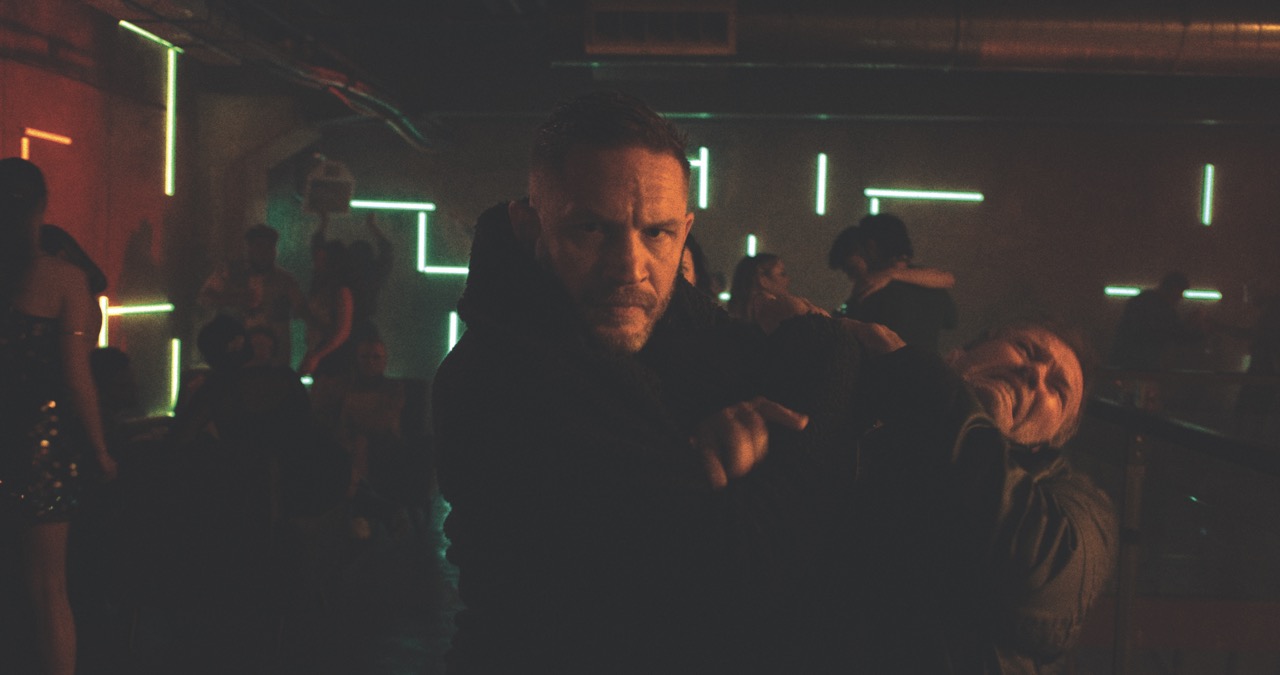
Def: You’ve gone further than most on sustainability by bringing in a full-time advisor. For other production companies who want to make real change, but don’t know where to start (or worry it’s too expensive), what would you tell them?
ET: Firstly, I would say it’s not always about cost, it’s often about mindset. It’s really important that the messaging is there from the start; producers need to communicate to their teams that this is something they really care about, and that the changes we make do matter. There’s a lot of guidance and support out there to get started – so my advice is to look for that and make use of it.
At Severn Screen, as well as tapping into this, we’re taking what we’ve learnt on recent productions, including Havoc and Mr Burton, and finding ways to share this. Last year, we ran a sustainability coordinator training programme funded by Media Cymru and Creative Wales to bring more sustainability professionals into the Welsh industry. We’ve also worked with some of our Welsh suppliers to identify more sustainable ways of working, which benefits them as well as helping us reduce the carbon impact of filming. Ultimately, across the industry there’s a lot of good practice and a lot of progress, but the work needs to be accelerated across the sector. We can all play a part in this.
Def: When you’re deciding whether to pursue a project, how much is instinct and how much is strategy? Has recent success with projects like Havoc and Mr Burton changed how you think about risk?
ET: We’ve never gone into a production purely for commercial reasons. It’s always been about wanting to back a particular writer or a director, or wanting to see a particular story told. Whether it’s a network drama, a film for a streaming service or an independent feature, you have to be passionate about the project you’re backing. Sometimes, it pays off and sometimes it doesn’t, but if you’re passionate about the project, the talent and team, then you’re giving yourself the best shot at success. Some of the projects on our slate have an obvious route to market, but others are less clear. As a team, we enjoy that mix, it keeps us on our toes!
Def: Finally, when you look ahead, what do you hope people will associate with the name Severn Screen? What kind of mark do you want to leave – on Wales and beyond?
ET: First and foremost, you want to be associated with good work, and the best way of delivering on that is to work with good people. We have a great team at Severn, and friends and colleagues across the wider sector. As long as we keep working with good people, I’d like to think we can keep producing interesting work.
A common denominator across most of our projects is a keen sense of place. We like to shine a light on Welsh talent where we can, whether in front of the camera or behind it. The people, places, landscapes and communities of Wales have been sorely underrepresented in drama for decades, so hopefully the work we do, in a small way, does something to address that.
We’re not entirely Wales-centric in our choices, but we have a natural leaning towards our own culture. After all, it’s a small nation with a minority language, and if we don’t speak up for ourselves, we can’t expect anyone else to.
Join us for another fireside chat in this interview with the CEO of Clear Angle Studios (CAS).
This article appears in the July/August 2025 issue of Definition

